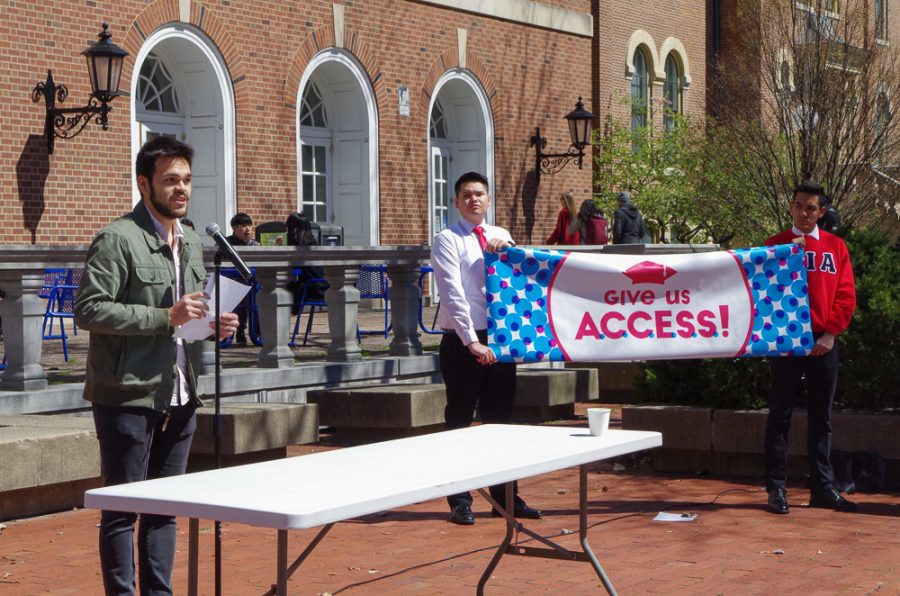Organization helps students understand undocumented students’ experiences
The Illinois Coalition Assisting Undocumented Students’ Education (I-Cause) and Phi Iota Alpha Fraternity Inc hosted “Coming Out of the Shadows” event addressing the deportation of undocumented immigrants and the circumstances for undocumented students.
April 17, 2017
The Office of Inclusion and Intercultural Relations hosted a discussion on Friday that addressed issues that undocumented students at the University face, ranging from recent chalkings on the Main Quad to financial situations.
Diversity & Social Justice Education, a branch of the Office of Inclusion at the Women’s Resource Center, led the talk which was part of the Lunch on Us noontime discussion series.
“I feel like a lot of students don’t understand undocumented students and how they experience college,” said Daven Douglas, sophomore in LAS.
Ross Wantland, assistant director of the Office of Inclusion and Intercultural Relations, said that in order to provide better help for undocumented students, it’s important to understand the issues they face.
Dr. Gioconda Guerra Perez, director of La Casa Cultural Latina, gave the audience a presentation that included the definition of undocumented students and their experiences on campus.
Get The Daily Illini in your inbox!
Perez said she hopes to educate the students and provide them with accurate information regarding the issue.
“I think it’s very important for our students and faculty who are learning about, or are curious about (undocumented students), to get as much information as possible,” she said. “(That way they) can help them whenever they talk to a student (who) may (be going) through a difficult situation because of their immigration status.”
Perez said she aims to share the works of La Casa on campus and highlight the resources they offer to students in need.
However, Perez said there is no way to determine the number of students on campus who are undocumented since the University does not keep track of them.
She also addressed the discrimination that undocumented students face on campus. Perez said she is very vocal about the discriminative chalking on the Main Quad because it is something that should not happen.
“When you write a message that says ‘Stop supporting, start deporting,’ you are directly messaging a group of students who are part of our community,” she said. “That particular type of narrative is in detriment of a group of people that live in the residence halls, who walk around the Quad, who attend classes, who are our students. So attacking them directly, to me, is very hurtful.”
Perez said it is a well-known fact that there are undocumented students on campus.
“We are an institution (in) which we celebrate diversity, we celebrate that we are inclusive and we celebrate that we welcome everybody,” she said. “And we need to continue sending (that) message.”
Another major issue Perez addressed is the financial hardship undocumented students often face.
“There is hope in the near future, something could be worked out in order for our undocumented students to request private funding,” she said.
Jaime Nolasco, senior in LAS, has been working on issues regarding undocumented students for two years. He said that compared to the last few years, the University is now offering more resources.
Nolasco said that events like the Office of Inclusion and Intercultural Relations’ discussion on Friday show that the University is taking steps in the right direction and encouraging dialogue.
“It’s hopeful because folks are out here, not only students, but staff and community members are fighting for (these) type of things. So as long as we stay active in these issues, there is hope,” he said.







